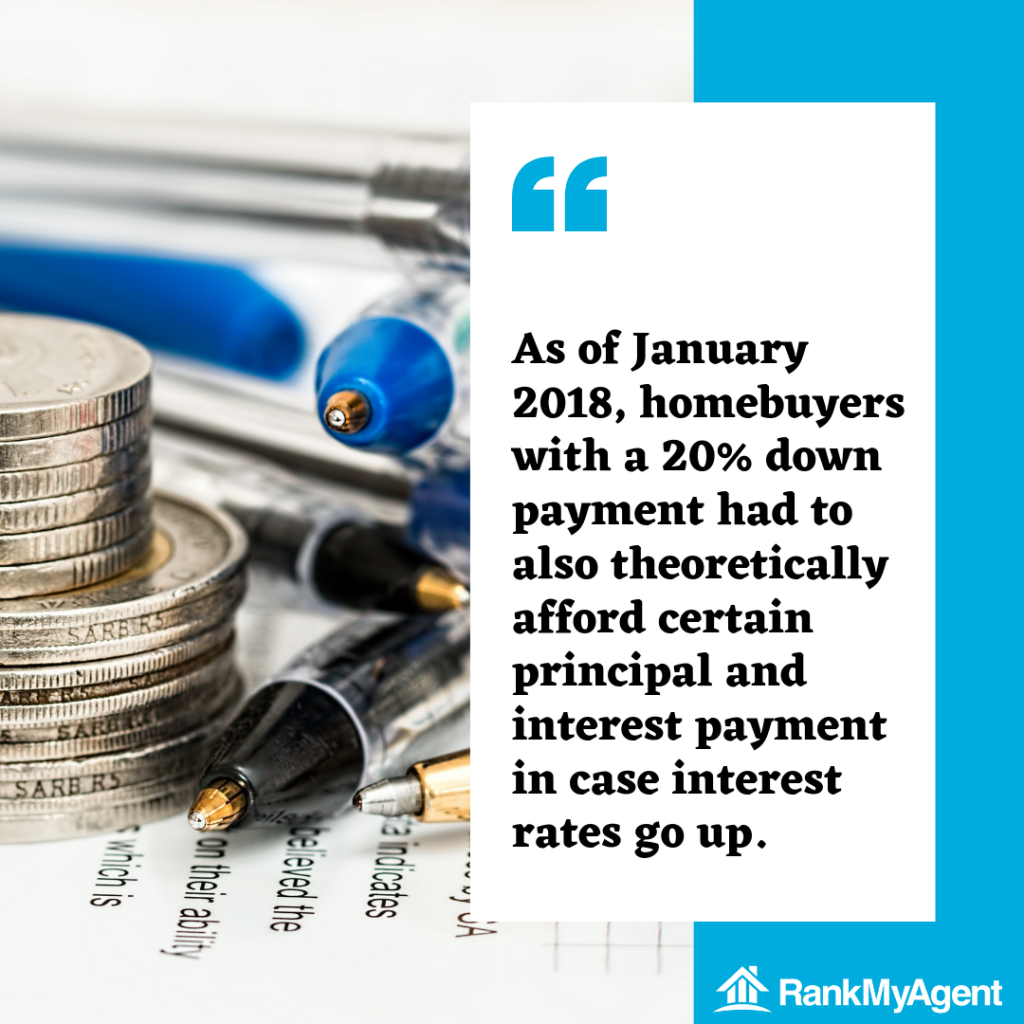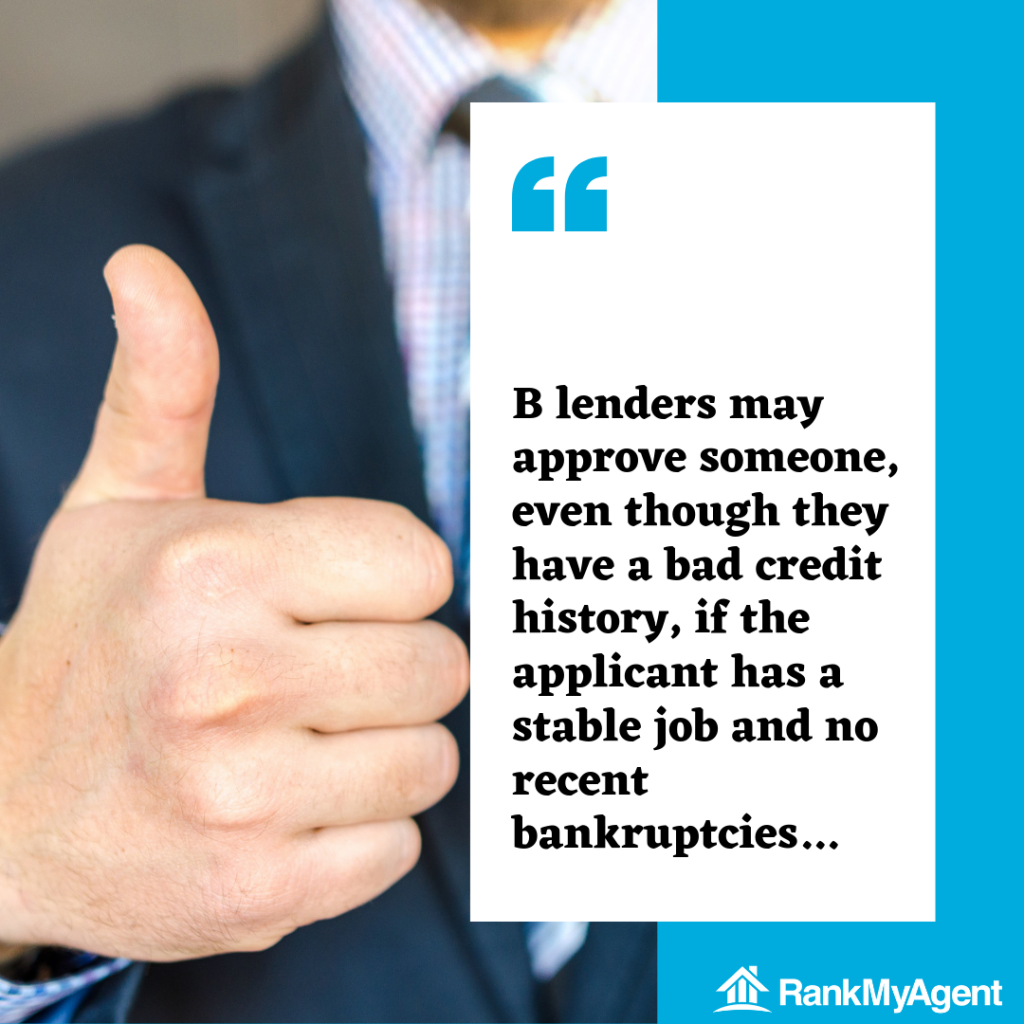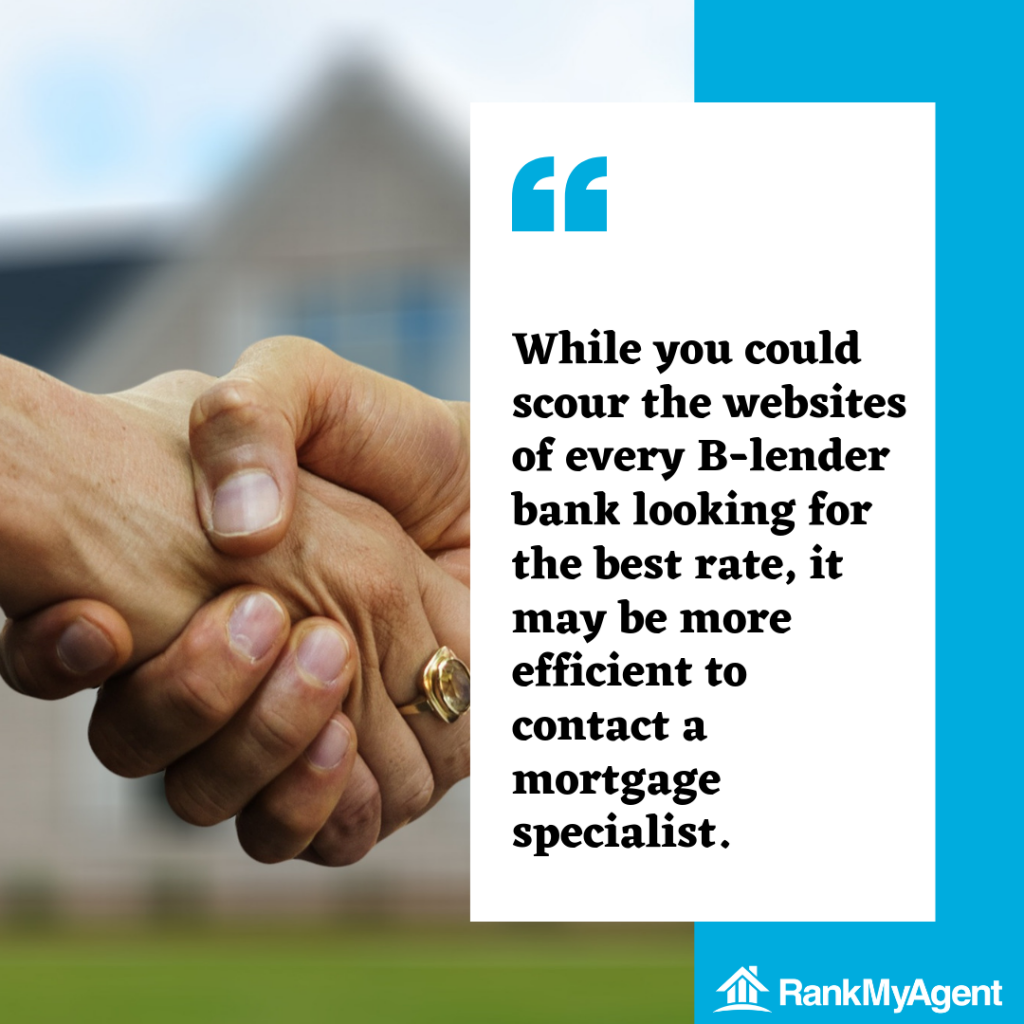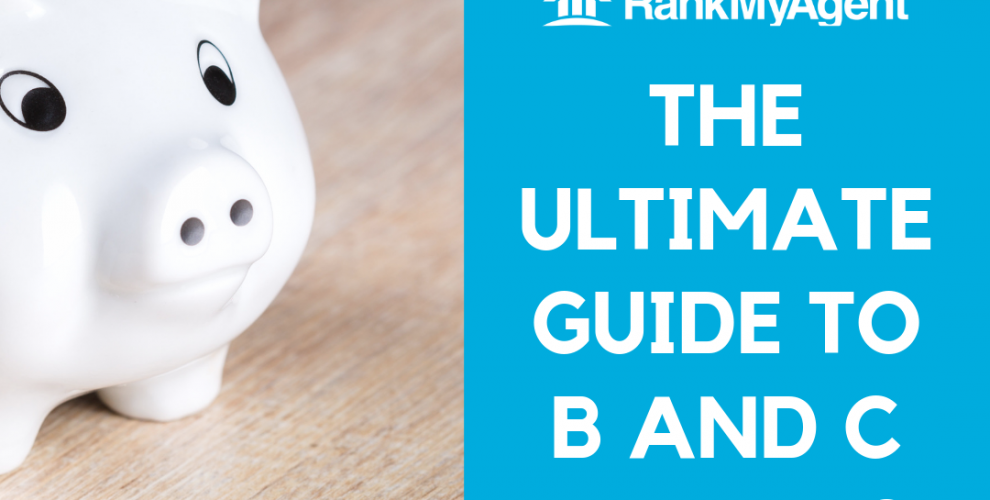When one of the major banks declines your mortgage application, you shouldn’t give up. The big banks, also known as “A lenders”, are not the only businesses or people that lend out money. B lenders and C lenders (also known as private lenders) are businesses or people willing to lend money to homebuyers that were turned down by A lenders.
In this post, we look at the reasons why people don’t qualify for an A-lender mortgage and at the alternative lenders and how to borrow from them.

Reasons why you may not qualify for a mortgage
A year and a half ago (January 2018), the Canadian government tightened the qualifications required for a mortgage. They implemented a “stress test” where homebuyers with a 20% down payment had to also theoretically afford certain principal and interest payment in case interest rates go up. Ever since, more homebuyers — unable to satisfy this stress test — have flocked to B and C lenders to have their mortgages approved.
As the government creates new regulations and the economy and interest rates change, it will heavily influence who gets and doesn’t get approved for a mortgage. But this isn’t the only reason for a major bank to decline a mortgage applicant.
On a more case-by-case scenario, a common factor to mortgage rejection is poor or no credit history. A credit score is a number on the scale of 350-900, where 350 is bad and 900 is stellar, which explains a person’s spending habits. The score depends on history of debt payments, how long you’ve had a credit account for, new inquiries for credit, and other factors.
Quite frequently, first-time homebuyers are plagued with the poor spending habits of their younger self. This could have been a mismanaged credit card or high student loan debts, which would have resulted in a terrible credit score. Another issue is if the person has never had credit. This would result in no credit history that the lender could rely on.
There is hope, however. Even with a bad or missing credit history, individuals can still get approved if they have a guarantor or co-signer. This is someone legally liable for your loan payments if you default.
Self-employment is another common way that people find themselves unable to get their mortgage application approved. Due to the instability of their income, A lenders find self-employed people a greater risk. Thus, the bank may require a higher taxable income or a larger down payment to approve of someone who is self-employed.
Lastly, many people make financial mistakes, and this can result in bankruptcy. People who have declared bankruptcy in the past few years likely won’t get approved by any major bank and will have to seek help from a B or private lender.

The alternatives
While A lenders consist of the major banks, like RBC, TD, CIBC, etc…, and the major credit unions, there are many more organizations willing to lend money. Just because you’ve been declined at an A lender, doesn’t mean you’ll have to head to a sketchy alleyway and find a loan shark that charges a 30% interest rate. Alternative lenders have a lower barrier to entry in exchange for a higher interest rate. They also commonly charge a processing fee that’s 1-2% of the mortgage and a brokerage fee, usually 0.5% of the mortgage.
Often, using an alternative lender is not a permanent fix. Many borrowers use an alternative lender as a way to rebuild their credit and then apply for an A lender later on.
B Lenders
Contrary to what one might think, there are dozens of banks in Canada. Many of these smaller banks, such as Equitable Banks or B2B Bank, allow clients to miss one or more of the components that the big banks look for in a client. For example, they may approve someone even though they have a bad credit history if the applicant has a stable job and no recent bankruptcies. B lenders also more heavily consider the property being purchased in offsetting default risk.
There is no need to fear B lenders. B lenders are still reliable organizations, commonly listed on the stock exchange, and have millions of clients worldwide. They are also approved by the Canadian Mortgage and Housing Company as a mortgage lender.
C Lenders (Private lenders)
Private lenders are a last resort, only occurring once a B lender has turned you down. These lenders are often rich individuals or a group of individuals who lend out their own money for a better return. As private lenders take on even riskier clientele than their B-lending counterparts, they charge a higher interest rate, as well. You can expect interest rates anywhere between 10-to-18% and possibly even more.
The barriers to entry for these mortgages are lower than that of B lenders. Instead of approving a mortgage only on credit scores and occupations, a private lender weighs more emphasis on the property type and value. If you’re refinancing a home, they also consider the amount of equity you already have. This isn’t to say that other lenders don’t consider the property itself, but that private lenders care more about it.
Lastly, because you may not be dealing with a massive and trustworthy corporation in the private lending landscape, it’s best to have a lawyer thoroughly look over any documentation.

How to get a subprime mortgage
The term “subprime mortgage” shouldn’t scream horrors of the 2008 recession. Subprime mortgages are realistically a part of everyday life and refers to any loan granted to those with a poor credit score. The mortgages provided by B and C lenders are usually subprime mortgages.
So if you’ve decided to get one, where should you start? Unlike A lenders, B and C lenders do not have a brick-and-mortar store at the corners of every major intersection. And while you could scour the websites of every B-lender bank looking for the best rate, it may be more efficient to contact a mortgage specialist.
Mortgage brokerage or freelance mortgage specialists help homebuyers navigate the alternative lending market. They have access to multiple lenders and their mortgage rates, and they can even negotiate a lower rate for you. With their expertise, they can also find the lender that is most suitable for your situation. However, they take a percentage of your total mortgage as a commission, which can result in motivation for them to approve you for a mortgage you shouldn’t be approved for.
Online mortgage brokers are now also a popular method to scour the B-and-C lender landscapes. These brokers cut margins by operating online and pass the savings onto their customers. Using technology, they can find out who the best lender is for you.
If you’ve been denied by a major bank for your dream mortgage, there’s still hope. Though it may cost a bit more in terms of interest, it’s only be temporary until you get your credit back on its feet. B and C lenders can help you get one step further to do what you thought was previously impossible.

